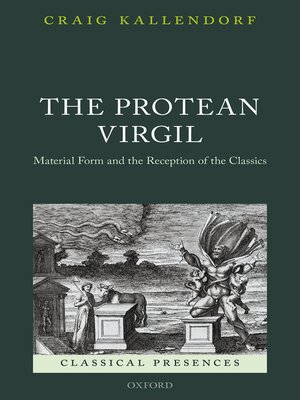The Protean Virgil
ebook ∣ Material Form and the Reception of the Classics · Classical Presences
By Craig Kallendorf

Sign up to save your library
With an OverDrive account, you can save your favorite libraries for at-a-glance information about availability. Find out more about OverDrive accounts.
Find this title in Libby, the library reading app by OverDrive.



Search for a digital library with this title
Title found at these libraries:
| Loading... |
The Protean Virgil argues that when we try to understand how and why different readers have responded differently to the same text over time, we should take into account the physical form in which they read the text as well as the text itself. Using Virgil's poetry as a case study in book history, the volume shows that a succession of material forms - manuscript, printed book, illustrated edition, and computer file - undermines the drive toward textual and interpretive stability. This stability is the traditional goal of classical scholarship, which seeks to recover what Virgil wrote and how he intended it to be understood. The manuscript form served to embed Virgil's poetry into Christian culture, which attempted to anchor the content into a compatible theological truth. Readers of early printed material proceeded differently, breaking Virgil's text into memorable moral and stylistic fragments, and collecting those fragments into commonplace books. Furthermore, early illustrated editions present a progression of re-envisionings in which Virgil's poetry was situated within a succession of receiving cultures. In each case, however, the material form helped to generate a method of reading Virgil which worked with this form but which failed to survive the transition to a new union of the textual and the physical. This form-induced instability reaches its climax with computerization, which allows the reader new power to edit the text and to challenge the traditional association of Virgil's poetry with elite culture.






